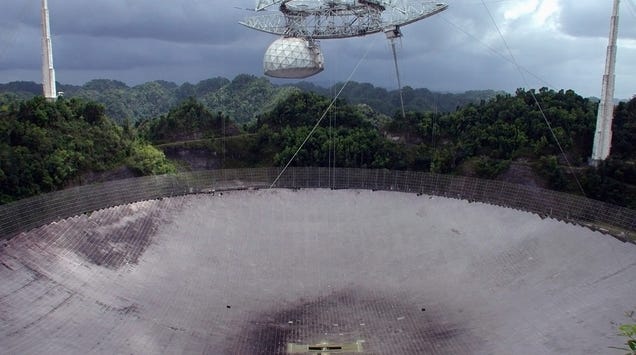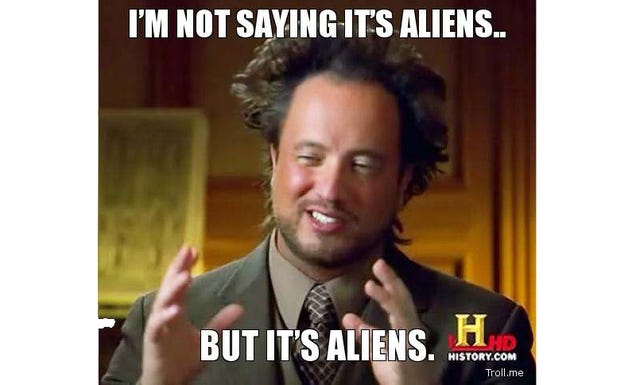
Back
in 2007, astronomers detected an incredibly brief, incredibly strong
radio wave burst in Australia. And now, on the opposite side of the
world, astronomers have detected a second blast of similar proportions. Meaning that A) the first one wasn't a fluke, and B) we have absolutely no idea what's causing them.
This
second ultrafast flash of radio waves was discovered by the Arecibo
radio telescope in Puerto Rico, which had been putting out its feelers
in hopes of discovering neutron stars. Instead, it got the second
instance of so-called fast radio bursts (FRBs), which finally allowed
astronomers to rule out cosmic noise and formally report them. Because
unlike the radio signals we usually detect, these radio waves "show every sign of having come from far outside our galaxy."
According to Laura Spitler,
a post-doctoral researcher for the Max Planck Institute for Radio
Astronomy in Germany, the discovery is a major step forward:
We really have no handle on what they are. Scientists are highly skeptical of such discoveries … [that] all of the bursts up until now had been discovered by the Parkes telescope was a cause of concern. Now, with the discovery of a burst from Arecibo, we are more confident that FRBs are astrophysical phenomena, and discovering and classifying them should be a priority of radio astronomical observatories in the future.
Until
we're able to uncover more of these FRBs and properly study them,
though, scientists are at a loss for what could be causing them. Some
proposed explanations have included evaporating black holes, mergers of neutron stars, and flares from extremely powerful neutron stars called magnetars. And as Duncan Lorimer, one of the astronomers who uncovered the first set of FRBs told NPR:
There's even been discussions in the literature about signatures from extraterrestrial civilizations.
It may be quite a while before we get any definitive answers, though. The two radio telescopes that detected the waves suffer from tunnel vision,
which means that since our view is so limited, any FRBs we find in the
future will largely be thanks to luck. But as Cornell astronomer James
Cordes also said to NPR, "The nice things about this in the current
stage is that we really don't know what these bursts are caused by. And
so the sky's the limit in some respects."
Or to put that in layman's terms:


No comments:
Post a Comment